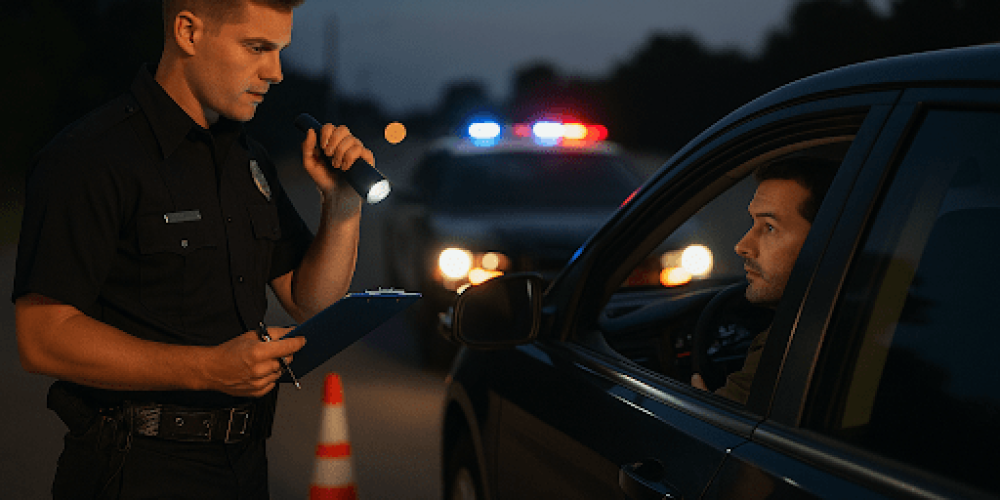What is a DUI and Why Does It Matter?
What is a DUI? It stands for “Driving Under the Influence,” a legal term used when a person is caught operating a vehicle while impaired by alcohol, drugs, or other substances. Every state has laws against DUI, and the consequences can be severe, even for first-time offenders. Understanding it means can help you avoid legal trouble and make better choices on the road.
Legal Definition and How DUI Laws Work
The exact DUI laws vary by state, but the basic meaning is the same: Driving Under the Influence of a substance that impairs your ability to safely operate a motor vehicle. Most commonly, this refers to alcohol, but it also includes:
- Marijuana
- Prescription medications
- Over-the-counter drugs (e.g., antihistamines)
- Illegal narcotics
In most states, drivers are considered legally impaired if their blood alcohol concentration (BAC) is 0.08% or higher. However, for commercial drivers or individuals under the age of 21, the legal limit may be lower. Even if your BAC is under the limit, you can still be arrested if your behavior shows signs of impairment.
Some states also use the term DWI (Driving While Intoxicated) or OWI (Operating While Intoxicated). While they mean similar things, the terminology and implications may vary.
To see how DUI and DWI are defined in your state, visit the DUI & DWI Laws resource at 1800DuiLaws.com.
What Happens After a DUI Arrest
Getting arrested for DUI triggers a legal process that begins immediately. Here’s what typically happens:
- Arrest and Booking – After field sobriety tests or a BAC test, you may be arrested and taken to jail.
- License Suspension – Your license could be suspended right away, even before your court date.
- Court Hearing – You’ll appear before a judge to hear the charges and enter a plea.
- Penalties – If convicted, consequences can include:
- Fines ranging from hundreds to thousands of dollars
- Jail time or community service
- Required DUI education or substance abuse classes
- Mandatory use of an ignition interlock device
Many offenders are ordered to attend DUI education classes, and some are required to install ignition interlock devices that prevent their car from starting unless they pass a breath test.
Preventing DUI: Smart Driving Choices
The best way to avoid a DUI is to plan ahead and never drive while impaired. Simple decisions can make a big difference:
- Designate a sober driver before drinking
- Use rideshare services like Uber or Lyft
- Take public transportation or call a cab
- Check how your medications affect your driving ability
- Know your BAC levels before getting behind the wheel
You can learn more about BAC and how it’s measured using tools at 1800DuiLaws.com’s BAC Test Guide.
Know What a DUI Is Before You Risk It
Understanding what a DUI could cost you your license, your reputation, and even your life. A DUI isn’t just a traffic violation—it’s a criminal offense that can have lasting consequences. If you ever find yourself unsure about your ability to drive, the safest option is always to stay off the road.
Charged with a DUI? Get Legal Help Today
If you’re facing DUI charges, don’t try to handle it on your own. A skilled DUI attorney can help you understand your rights and discuss your case. Visit 1800DUILaws.com to connect with an experienced lawyer and discuss your DUI case.
Frequently Asked Questions (FAQs)
1. What does DUI stand for?
DUI stands for “Driving Under the Influence,” which means driving while impaired by alcohol or drugs.
2. Is a DUI the same as a DWI?
Not always. In some states, DUI and DWI are separate charges with different meanings, while in others, they are used interchangeably.
3. Can I get a DUI from prescription drugs?
Yes. Even legally prescribed medications can impair driving and result in a DUI.
4. What penalties come with a DUI?
DUI penalties include license suspension, fines, court-mandated classes, jail time, and more.
5. How can I avoid getting a DUI?
Use a designated driver, take a rideshare, or stay put if you’ve consumed anything that might impair your ability to drive.
Key Takeaways
- DUI stands for Driving Under the Influence of alcohol or drugs
- You can be charged even if you’re under the legal BAC limit
- Penalties include fines, license loss, and possible jail time
- Education classes and interlock devices may be required
- Legal help is crucial if you’ve been arrested for DUI








